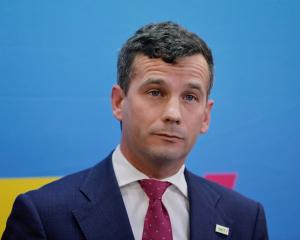The Dunedin City Council appears to be headed for a term-defining moment.
Today, it should become clear enough whether the council is serious about climate action, whether its priorities lie elsewhere or whether it prefers to prevaricate.
The 2016-19 council declared a climate emergency.
The 2019-22 council adopted a zero-carbon policy and resourced a policy team to explore how ambitious 2030 targets might be achieved.
A draft plan was developed and the 2022-25 council is tasked with deciding whether to adopt it and, if so, to what extent money should flow into making it happen.
Today’s discussion could head in various directions.
Should 2030 targets be pushed out to 2040 or 2050?
Should the council adopt the plan and signal a high-investment scenario is favoured?
Should the plan be endorsed but without any signal yet about the level of resourcing likely to be backed to achieve its goals?
Deliberations next year about the council’s 2024-34 long-term plan are when councillors will have to be plain about their priorities, but today is when they might drop compelling clues.
It may be considered clues have been left already.
In June last year, a vote to adopt the zero-carbon policy was carried 10-4.
Councillors who remain at the table who voted for were Sophie Barker, David Benson-Pope, Christine Garey, Carmen Houlahan, Marie Laufiso, Jim O’Malley and Steve Walker.
Council members still at the table who were against were Jules Radich, Lee Vandervis and Andrew Whiley.
Mr Radich has since become the mayor and the election produced a council that appeared to be evenly split between the political left and right.
However, it cannot be inferred with certainty all the names will line up the same way they did on last year’s vote, or even that a vote to adopt the plan will be tight.
One of Mr Radich’s campaign priorities was to "make Dunedin a sustainable city, socially, economically and environmentally".
The fact a state of emergency was declared across Southland and in Queenstown a few days ago amid heavy rain and flooding will not be lost on city councillors, or that such situations have become more frequent in New Zealand.
The council is well aware it is part of an alliance invested in 2030 targets.
On the flip side, argument may well be had about the need for fiscal prudence amid cost-of-living pressures, the desirability of targets being realistic and perhaps of spending money only where there is assurance of bang for buck.
The draft plan is sweeping in scope but adopting it would not yet commit the council to a great deal of climate action. Much of the early implementation seems to be about exploration and study or making timely progress in areas where the council already has fairly clear intentions.
So it seems most likely the main territory for argument — sooner or later — will be about the size of budgets.
Indications have been provided about a six-year spend trajectory that show medium and high-investment scenarios could be much the same. On the face of it, giving the city a realistic shot of hitting its 2030 deadline would seem to call for more than the council running with a low-investment scenario in which the big-ticket item of transport is not convincingly dealt with.
In the end, the council and community will need to decide what their level of commitment to change is, and how quickly. This will ultimately be determined by dollars and action.












